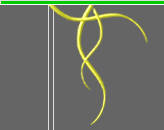| |
Chypre (Chypre, Chypres)
 |
Chypre (pronounced [ʃipʁ] or [ʃipχ]) is the name of a family (or concept) of perfumes that are characterised by an accord composed of citrus top-notes, a middle centered on cistus labdanum, and a mossy-animalic base-note derived from oak moss. Chypre perfumes fall into numerous classes according to their modifier notes, which include but are not limited to leather, florals, fruits, and amber.
History
Chypre is French for Cyprus.
The term chypre is French for Cyprus, and goes back to François Coty who created in 1917 a perfume of the same name (now preserved at the Osmothèque) from fragrance materials that came predominantly from Mediterranean countries. Coty's ‘Chypre’ became the most typical representative of a whole family of related fragrances, although perfumes of similar style had already been created throughout the 19th century. The chypre concept is characterised by the contrast between the fresh citrus accord and the woody-oakmoss base; often patchouli is considered an indispensable element as well. Other main fragrance families besides chypres are fougères, orientals, gourmands, and florals. The chypre accord is used in both male and female perfumery.
Notable examples
Since the mid-1980s, Karl Lagerfeld cologne, orange in color, called "Lagerfeld" is a modern chypre scent for both men and women.
In the 1950s and 60s in the USSR, "ШИПР" Shipr, became a popular men's fragrance. Today ШИПР is still available in Russian cosmetic stores and it is a popular scent among women.
Style
Modern chypre perfumes have various connotations such as floral, fruity, green, woody-aromatic, leathery, and animalic notes, but can easily be recognized by their "warm" and "mossy-woody" base which contrasts the fresh citrus top, and a certain bitterness in the dry-down from the oak moss and patchouli. The accord consists of:
Citrus: singular or blends of Bergamot, Orange, Lemon or Neroli
Oak moss: mossy and woody.
Patchouli: camphoraceous and woody.
Musk: sweet, powdery, and animalic.
The composition is usually enhanced with a floral component through rose and jasmine oil.
Animalic notes such as civet can be added to this accord to provide richness, but are less popular in modern perfumery. The most common modifiers to this basic accord include patchouli, bergamot, vetiver, ambergris, sandalwood and labdanum resin.
References:
In part contributed from:
https://en.wikipedia.org/wiki/Chypre
Disclaimer: The information presented herein is intended for educational purposes only. These statements have not been evaluated by the FDA and are not intended to diagnose, cure, treat or prevent disease. Individual results may vary, and before using any supplements, it is always advisable to consult with your own health care provider.
|
|


















